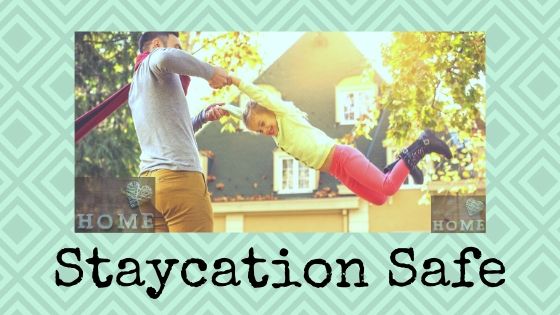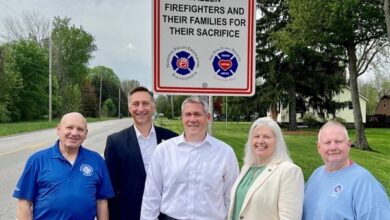Staycation safety tips

With the warm weather rolling in, many New Yorkers are eager to begin traveling and planning their summer vacation. Although U.S. travel restrictions are easing as more individuals get vaccinated, many people are still opting out of long distance vacations. Many families will still practice ‘stay-cations’, or ‘stay close-to-home vacations,’ as they adjust to a more post-pandemic lifestyle.
New York Governor. Andrew Cuomo recently announced the lifting of the mask mandate and curfew for all New York residents. As a result, many are anxious and willing to get back to normal. The Firemen’s Association of the State of New York (FASNY) is reminding residents to practice safety on a ‘staycation’ by taking extra precautions to prevent fires, injuries, and exposure to COVID-19.
“We understand people have been cooped up for several months and may need to take a break to benefit their mental health,” said John Farrell, President, Firemen’s Association of the State of New York, “Whether your family decides to rent a home or cabin, set up camp at a local site, or make your backyard an oasis, fire safety is paramount.”
Renting a home
“If you decide to rent a home or cabin, families need to make sure there are working smoke detectors and CO2 alarms throughout the house,” said Farrell.
According to a 2019 study by the NFPA, three of every five home fire deaths resulted from fires in homes with no smoke alarms (40%) or smoke alarms that weren’t working (17%). In fires in which the smoke alarms were present but did not operate, more than two of every five (43%) of the smoke alarms had missing or disconnected batteries.
“A simple check that your vacation spot has working CO2 alarms and smoke detectors is an important step that can prevent a tragedy,” said Farrell.
Further, families may be unfamiliar with the layout of a vacation rental property and may not know the best way to exit in an emergency. Once a smoke detector sounds, there may be less than two minutes to get out safely. Practicing an escape plan will ensure that each person is as prepared as possible. Since most fatal fires happen between midnight and 8 a.m., it is important to be prepared before the emergency occurs.
Camping
“New York State has many camping areas to enjoy,” said Farrell, “If families decide to camp they should remember to keep fire safety as a priority.”
Camping is an enjoyable summer pastime. Before building any outdoor fires, time should be taken to learn how to build one safely, how to control it, and how to extinguish it properly. According to the U.S. Forest Service (USDAFS), four out of five forest fires are started by people. Campers should always check with park rangers and local officials to see if campfires are permitted, especially during the summer when vegetation is dry.
Backyard BBQ safety
A backyard BBQ is a great way to spend time with family and make a delicious meal. All families should make sure they are barbecuing safely during the summer months.
“A BBQ is a great way to cook for the family,” said Farrell. “Yet, people must exercise caution and keep the grill well away from structures and where people are playing or walking.”
According to the NFPA, children under five accounted for an average of 39% of the contact-type burns per year. These burns typically occurred when a child bumped into, touched, or fell on the grill or hot coals. Grills should be kept in open areas and be cleaned to prevent grease fires.
Vacation rentals
Family and close friends that plan to visit this summer should treat their vacation home like their own home. Here are some tips to help practice home fire safety so that you and your loved ones can stay safe this summer.
•Make sure you come up with a plan for everyone in your home
•When you walk through your plan, check to make sure the escape routes are clear and doors and windows can be opened easily.
•Have everyone memorize the emergency phone number of the fire department. That way any member of the household can call from a neighbor’s home or a cellular phone once safely outside.
•If there are infants, older adults, or family members with mobility limitations, make sure that someone is assigned to assist them in the fire drill and in the event of an emergency
•Be fully prepared for a real fire: when a smoke alarm sounds, get out immediately
•Once you’re out, stay out. Under no circumstances should you ever go back into a burning building. If someone is missing, inform the fire department dispatcher when you call. Firefighters have the skills and equipment to perform rescues.
Pool Safety
Swimming pools are perfect for cooling off in the summer sun. Even though they are fun for the whole family, it only takes a moment for a child (or adult who cannot swim) to drown. All people with pools should make water safety a priority.
Children should never be left unattended near water and proper fencing should be installed to prevent an accident. When playing in or near a pool, someone should always be watching vigilantly. It only takes a moment.
“In the time it takes to reply to a text or turn off the oven, a child can fall into a pool and drown,” said Farrell. “All pools should have appropriate barriers to keep children out when adults are not around. When the pool is in use, an adult should be designated to watch in case something goes wrong.”
The US Consumer Product Safety Commission states that drownings are the leading cause of unintentional death among children ages 1 to 4 years old. Residential locations made up 71 percent of the reported fatal drowning incidents.
“On behalf of all of FASNY, we wish everyone a happy, healthy and safe summer,” said Farrell.
Provided information




